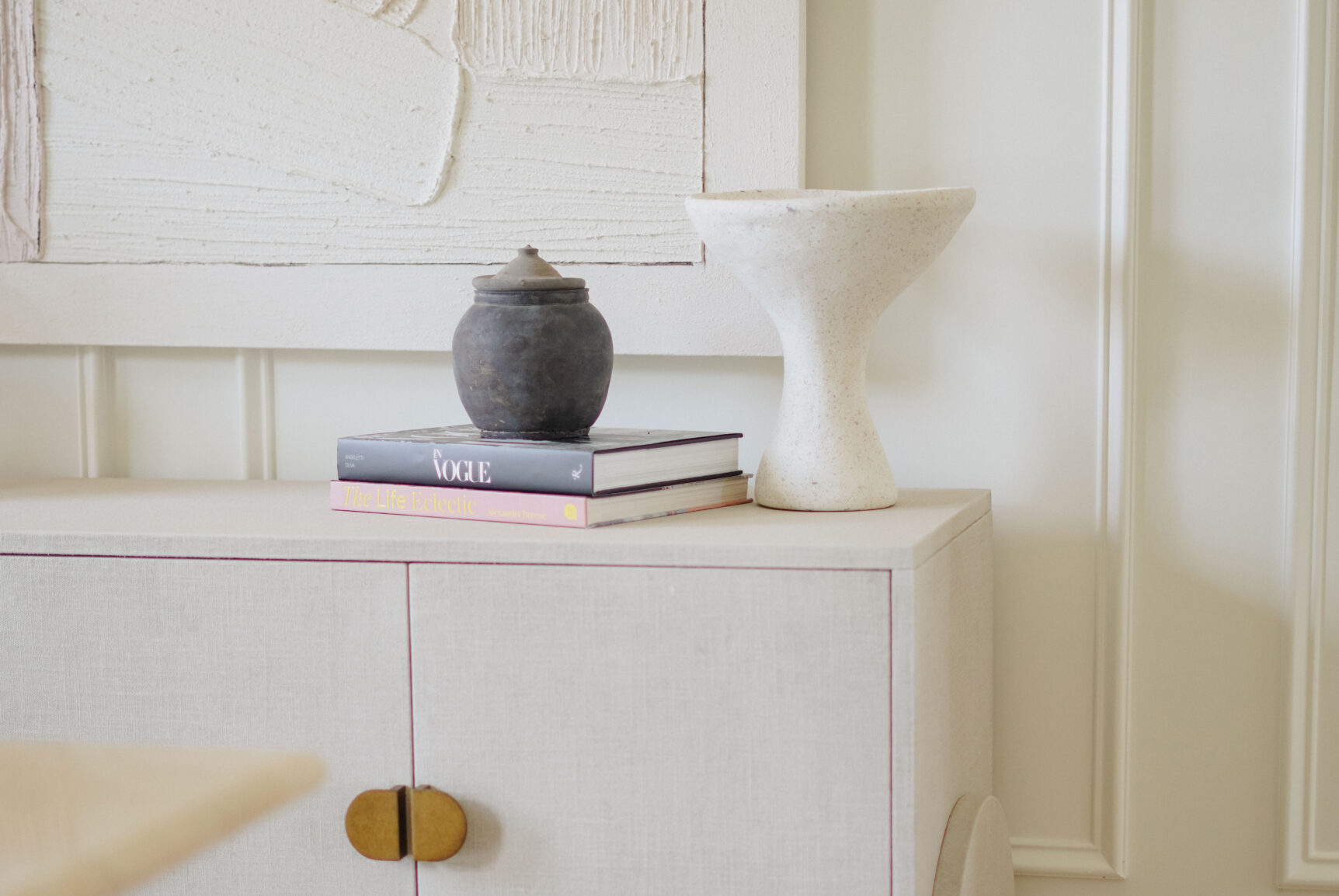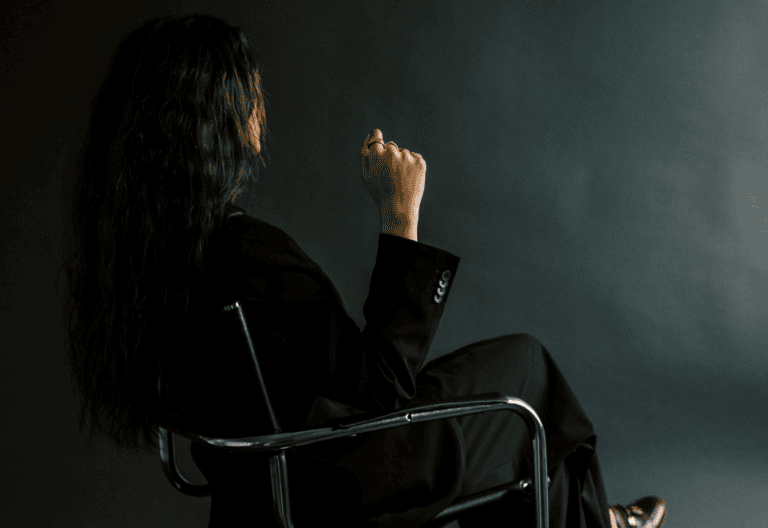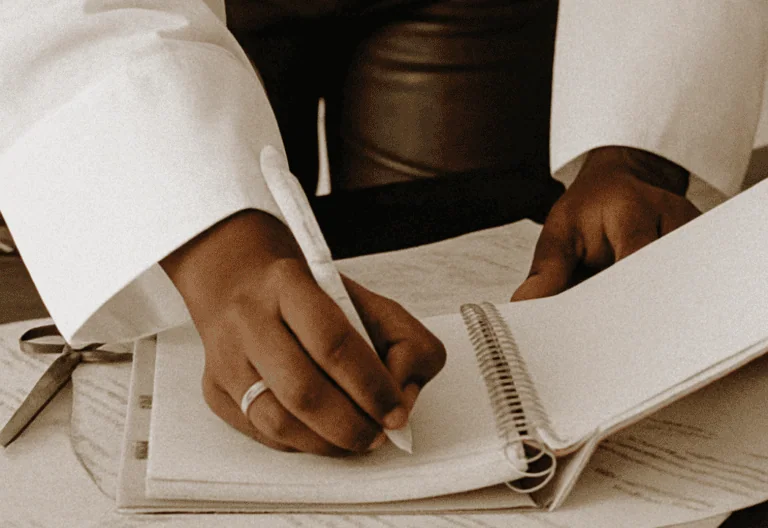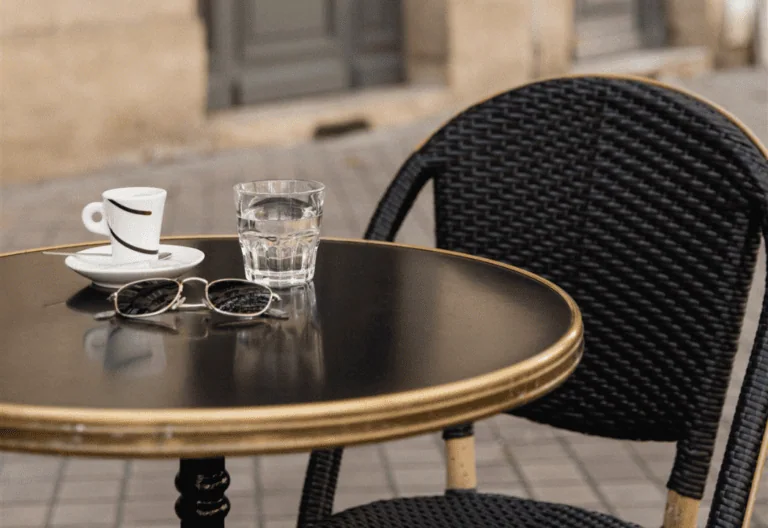
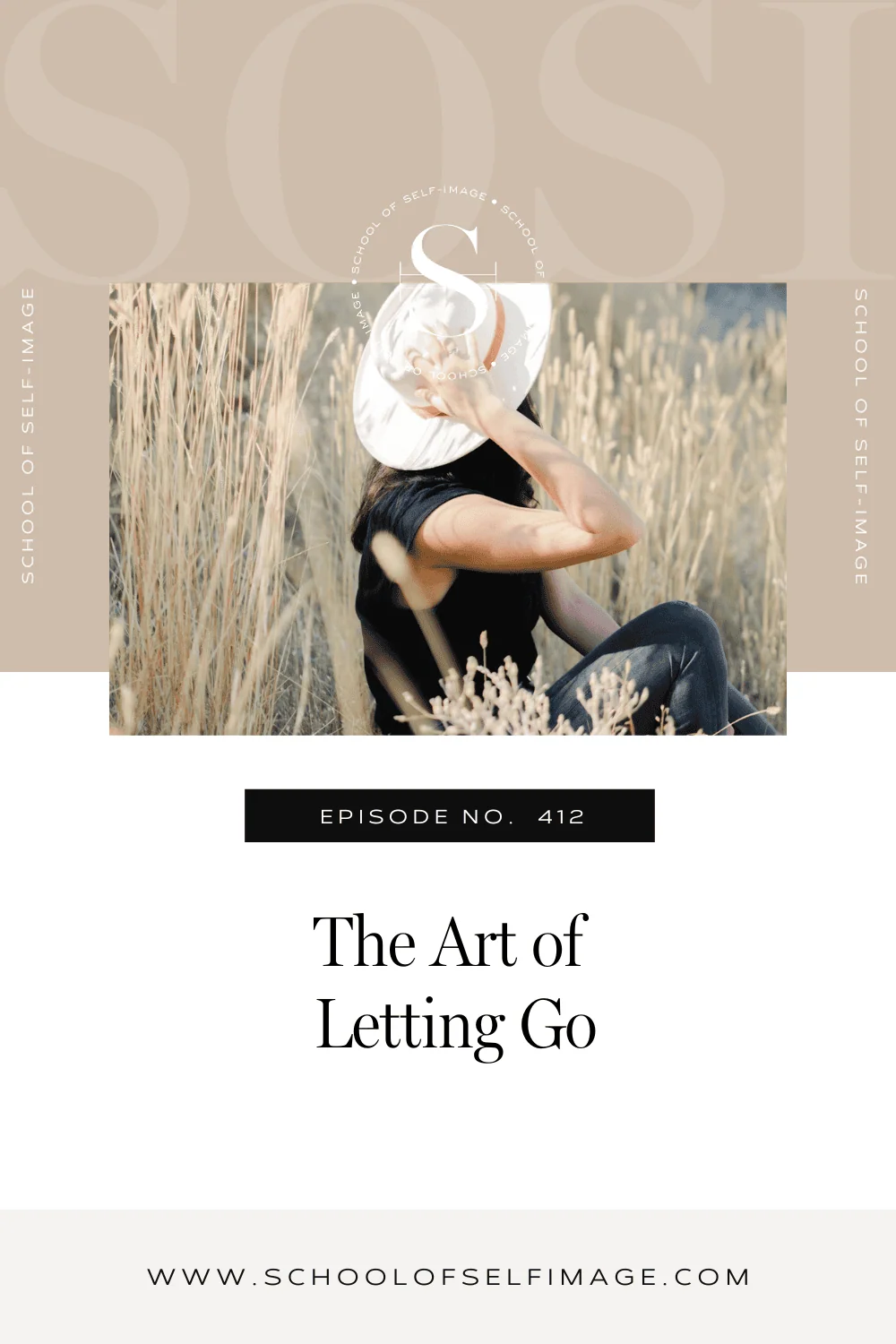
Finding Peace: Techniques to Release Attachments and Anxiety
In the journey of personal growth and freedom, awareness serves as the foundational step. Becoming aware of our thoughts, emotions, and attachments is crucial for breaking free from the cycles of worry and anxiety that often trap us.
Host Tonya Leigh dives into the transformative art of letting go, a topic she has passionately coached and personally navigated. Drawing from her own experiences and insights, Tonya emphasizes the importance of releasing attachments to ideas, people, and things, which can often lead to suffering and anxiety. She shares a pivotal moment during a vacation in Paris, where a friend’s advice and the book “Awareness” by Anthony de Mello sparked a profound realization about the roots of unhappiness.
Tune in to discover powerful techniques and wisdom from spiritual teachers and psychologists that can help you cultivate calm and break free from the cycle of worry.
Episode Details:
01:19 – The Concept of Letting Go
01:39 – Awareness by Anthony DeMello
02:02 – Attachment Causes Suffering
03:29 – Happiness and External Factors
05:37 – Embrace Reality as It Is
06:19 – Importance of Self-Observation
07:34 – Love Without Attachment
09:10 – Letting Go of the Ego
10:19 – Letting Go of the Need for Approval
14:15 – Embracing Uncertainty
18:16 – Dedication vs. Attachment
20:55 – Fall in Love with the Practice
21:59 – Let Go of the Rope
Useful Resources:
- Click HERE to join the Membership
- Click HERE for a FREE download
- Click HERE to sign up for our weekly newsletter, The Edit
Connect with Master Life Coach Tonya Leigh:
- Click HERE to follow our Instagram
- Click HERE to visit our website
- Click HERE to visit our Facebook group
- Click HERE to follow our TikTok
- Click HERE to subscribe to our YouTube channel
Episode Transcript
Do you ever feel trapped by your own thoughts? Maybe you feel like you’re not able to break free from the cycle of worry and attachment. Well, in this episode, we’re going to explore some techniques to master the art of letting go, drawing wisdom from spiritual teachers and psychologists and ancient philosophies. So if you’re worried, if you are feeling a lot of anxiety in your life, I think you’re going to really, really appreciate today’s episode. So let’s dive in.
Welcome to the School of Self-Image, where personal development meets style. Here’s your hostess, master life coach, Tonya Leigh.
Hello, my dear sweet friends. I have a very special topic for you today. It’s something that I have been coaching a lot around. It is something that I have worked on myself in my life for many, many years and it has brought me so much comfort, so much focus actually, and a sense of calm. And I feel like right now in the world that we’re in, we need more calm, and that is the art of letting go.
Many years ago, I was going through a very tough situation and I was actually on vacation with a friend in Paris as I was going through this. And I just remember her looking at me and saying, “Tonya, you’ve got to let go.” And she referred me to one of her favorite books, which has become one of my favorite books called “Awareness” by Anthony De Mello. And I remember reading that book crying, just sobbing because I had this realization that all of my suffering was because of attachment, my attachment to ideas and people and things.
They were the root cause of my unhappiness. And after I read that book, I thought to myself, “This is the work. The work is letting go of these attachments, which will lead to more freedom.” And I just want to be very transparent. I’m still in the practice of the art of letting go. But I wanted to share with you some of the points that I gained from reading this book. First, he talks about awareness is key. He talks about how people mostly live their life in this deep sleep-like unawareness.
The first step to letting go is becoming aware of our thoughts, our emotions, and our attachments. And this is a lot of the work that we do within the school of self-image. Many times we have to let go of our own identity to grow and evolve into the next version of ourselves. And that’s very difficult because identity is deeply rooted and we subconsciously are working to prove it true all of the time. And so you can’t change without awareness. It is very, very difficult, if not nearly impossible, you will just keep repeating the same old patterns living in what he calls a sleep-like state of unawareness.
The second point in that book is that happiness is not dependent on external factors. Happiness as is all emotion a result of our thoughts, what’s going on within. Happiness does not come from our possessions, our achievements, or other people’s approval. If that were true, the majority of us would be happy right now, because I am betting that you have certain things in your life that you once dreamt of. Maybe it’s a house, maybe it’s a car, maybe it’s a business. But it was something that you once dreamt of and now you have it and you may not yet be happy, proving this theory true.
And there was probably a time in your life where you thought, “If I could only have this thing, I would be so happy.” And now you have it and you’re not. Why? Because happiness doesn’t come from things outside of you. I bet you’ve achieved a lot. I bet you have gained other people’s approval and yet you may not be happy.
The other thing that Anthony De Mello says in this book is attachments cause suffering, attachments cause suffering. And it’s our fear of losing things that can cause suffering. We haven’t even lost it yet, but we think about it. Just thinking about the possibility of losing a loved one, of losing your home, losing your job, losing your status, whatever. Something that we just imagine our minds can cause us to feel so much suffering. Now, I’m not here to say that when you actually lose something that you’re supposed to be happy about it. Grief is a real thing and it’s something that we will all go through at some point in our life. But a lot of us are creating what Martha Beck calls a dirty pain. The pain of our imagination, just thinking about losing something that we haven’t even lost yet can cause us so much suffering.
He also says embrace reality as it is because so much of our suffering comes from us refusing to accept reality. But learning to see and accept things as they are rather than as we wish them to be, is crucial if you want to find peace in your life. Now, that doesn’t mean accepting and giving up. It doesn’t mean just surrendering. It means the truth of what is going on right now, the facts of your current situation and deciding from this place of acceptance what your next steps will be, what you’re going to do from here. But what you resist persists, and if you spend all of that time fighting with what is, that is energy that you can’t free up to focus on what can be.
He also talks about the importance of self-observation. He encourages us to observe ourselves from a non-judgmental point of view so that we can gain that insight and facilitate change. When I first start working with women within the membership and they’re learning these tools, so often they’ll find themselves discovering things and then they become their own worst critic. So many times they’ll come to a call and say, “I know I shouldn’t be thinking this. I’m so stupid to think this way. I should know this by now.” And I let them know, “First of all, no, you shouldn’t know it right now because if you should, you would. And it’s okay that you don’t know it right now, but now you do. Now you’ve had this state of awareness. What a beautiful thing. Can we just look at yourself as we would a child that we loved, a pet, that we loved someone or something that we love? Can we just observe you from that lens so that we can understand why? What’s the deep underlying motivating factors that are causing you to do this so that you can then experience change?”
One of my favorite quotes by American psychologist Carl Jung is he says, the amazing paradox is this, when you accept yourself as you are, then you can change. Another point that he makes in this book is that to experience freedom, you need to love without attachment. This one is challenging, this one causes us a lot of suffering. But he talks about true love involves appreciating others without needing to possess or control them. And the statement that he uses is, “I want everything for you. I need nothing from you.” And I know early on in my life I was quite the opposite. I’m like, “I love you and I want everything from you. And if you can’t give me that, then I’m going to cause some problems up in here.”
Because I didn’t understand that love is something that I create from within. The only reason why I’m feeling love around a certain person is because of my thoughts about them and what they’re doing. And when I discovered that, I realized, “Oh wait, I can feel love regardless of what this person’s doing or not doing.” And sometimes love of myself may mean me removing myself from this person because I just don’t want to have to work on my thoughts that much. That’s why environment is so important. So I am not saying you should just sit around with people who talk crap about you to your face, who are mistreating you, not at all. But what I’m saying is that you do cause yourself suffering when you need them to be different in order for you to feel love, you get to feel love all day every day, my friend, all day every day based on how you think. And that love needs to start with you. And again, sometimes the best way to love yourself is to remove yourself from certain people and certain situations.
The next thing that he talks about is letting go of the ego. This one’s big. Many of our attachments are rooted in our ego-driven desires and recognizing this illusion of the ego can help in letting go. I was thinking the other day about my new home. I am so loving my new home. And I was thinking about the people who are experiencing devastating loss up in Asheville and western North Carolina and parts of Georgia, parts of Florida. And I’m recording this actually right before Hurricane Milton, so I don’t even know the amount of devastation that that hurricane is going to cause. And I was thinking about that. I was thinking about what it would be like if just overnight something happened and I lost everything and it caused me to feel a lot of negative emotion because of the attachment, the attachment to things, the attachment of what my ego wants.
But I also have the awareness that even if I lost it all, even if tomorrow morning I woke up and everything was gone, I could still find some peace. I could still find something within myself to help me pick up the pieces and put it back together. Now, I’m not saying that would be easy. I would have to coach myself all day every day during that process. But that’s what hanging on causes so much suffering. The art of letting go is just realizing the suffering that is caused when we’re hanging onto these things, these ideas, these people, these things.
And the analogy that I often use when I’m coaching people is when I first learned to water ski, I would fall, but I would still hang onto the rope even though the boat is still going. Just physics says, I will never get up from that situation. But I would hang on because deep down there was some kind of reaction. This instinct, if I just hang on, maybe I can get back up. But it was never going to happen. I had to learn to let go of the rope. And in the letting go of the rope, I found myself in this very just peaceful state of being held by the water because I had a life jacket on and the boat was going to come back around and pick me up so I could just relax and let go. And that is my daily practice, you all.
Noticing when I’m hanging on to these thoughts, to these ideas, to the attachment of things. Just noticing and how much pain it causes, and knowing in those moments all I’m doing is hanging onto the rope of a moving boat flat of my stomach and it’s hurting and all I need to do is let go, just let go. And yet it’s so hard, the ego does not want us to let go. The ego wants us to have our way. It wants things to be a certain way, it wants these things. And yet in all of that, we experience so much pain and suffering.
The other thing Anthony De Mello talks about in his book is letting go of the need for approval. Think about how much suffering you experience because people don’t approve of you, or you are living out of integrity trying to gain other people’s approval, and that hurts just as bad if not more. What would your life be like if you did not need other people’s approval? And I have a whole podcast on this. So if you search approval, School of Self Image, you’ll find the podcast. And if this is something that you experience, if it’s something you struggle with, I highly recommend that you go and listen to that episode.
But this is something I’ve been playing around with a lot. And the more I play around with it, the better life gets. The more free I feel, the more me I feel. The ability to just show up in the world as you truly are, sharing the things that you truly love, expressing yourself in a way that feels true to you. It is the most freeing thing in the world. And yet we hang on to this attachment for approval. What if you just practice letting that go? And I keep saying practice because it is a practice. When you have been conditioned a certain way and you’ve been doing things a certain way and you’ve been thinking in certain ways for so long, it is not an overnight success story.
It takes days and days and months and months and years and years of practice until one day you look in the mirror and you’re like, “Oh my God, I’m feeling so good even though the world’s chaotic, even though I don’t know what tomorrow holds.” And by the way, none of us do because life is all about uncertainty, but I feel a sense of peace. I feel a sense of calm. That’s a result of practice, my friends.
And that’s the last thing that he talks about, embracing uncertainty, accepting that life is inherently uncertain. And if you just accept that, you can begin to practice letting go of the need to control. And this one’s a hard one for me. I have this deep belief, even though I know it’s a bald face lie, that I can control certain things. If I tell my daughter enough to be careful, maybe she’ll listen and the outcome will be different. If I take care of things, then maybe I can avoid certain things happening. And so we go around micromanaging, trying to control everyone, especially the people we love, which is so interesting because we don’t want to lose them.
And yet nothing in life is certain. And I just know my brain and how my brain loves to go to worst case scenarios. It loves to entertain me losing the people I love, and I just have to practice letting go of that in the moment. I’m like, “But wait, they’re all doing really well. They’re all happy. Some of them are in the next room. It’s all okay.” But that’s what our brains do. And so if your brain does that as well, just know you’re not alone. Again, I’ve been practicing this for years and my brain still wants to go there sometimes. But the difference is with the awareness, I can just recognize it and I can refocus. And what I love to refocus on is what’s real in this moment and in this moment, I’ve realized we’re all okay. If we just come back to this moment, even if we’re hurting, even if we’re grieving, we’re still okay.
It may not be amazing. It may not be extraordinary in the moment, but we’re okay. I come back to the basics. The basics of presence, and the basics of just take a breath and then take another. Tune into my body, tune into my mind, gain that awareness of why I’m suffering. And sometimes with just awareness alone, things will shift. Now, sometimes I have to guide myself. I have to tell myself, let’s redirect, let’s refocus. But what I can offer you is that the practice does become easier, but you have to first realize the reason why you’re suffering right now is most likely because you are attached to something or you fear losing something, which is also an attachment.
Now, one of the questions I often get asked is, “If you’re living in this state of so much calm and peace, then how do you get things done?” Because so many people associate going after goals with attachment to outcomes. But I want to talk about the difference between dedication versus attachment. So dedication, I see as this committed focus on a goal, on a person, or a pursuit of some sort. Attachment is different because it’s an emotional dependence on specific outcomes or possessions. So dedication is about the action. Attachment is about the emotional attachment, the emotional dependence.
Also, if you look at the motivation behind the two, dedication is driven by values, growth, and a meaningful contribution. Whereas attachment is often driven out fear, insecurity or this desire to control. If you look at the flexibility of dedication versus attachment, dedication allows for adaptation and change when necessary. Attachment is different. It tends to be very rigid and resistant to change. If we look at the emotional impact, dedication generally leads to fulfillment and positive emotions, whereas attachment results in anxiety and disappointment and suffering. This is a big one.
The outcome focus. Dedication emphasizes the journey and the effort. Whereas attachment is fixated on specific results or possessions. And that therein lies the difference. I have created a lot of success in my life, and when I look back at how I have done it, when I have been most unfulfilled and most anxious, it’s because I was so focused on the outcome, was attached to it. When I’ve had the most fun and actually the most success in my life is when I’ve had this deep sense of dedication, where I just focus. I have the goal, I have the outcome that I’ve put out there, but all of my energy just comes back to being dedicated to this day, to this moment. How am I showing up today? What am I going to learn today? What obstacle am I going to overcome today? What am I going to create today? Who am I going to be today?
And when I focus on that, I will tell you that I suffer a whole lot less and have a whole lot more fun. This is one of the biggest things that I teach within the School of Self-image. I encourage every member to have a goal, a goal that delights them, that lights them up, and also requires them to grow, to evolve their self-image. And then I tell them, “You’ve done it. You’ve set the goal. Now I want you just to fall in love with the practice, be dedicated to the practice.” And the practice is what we teach within the membership. And I encourage all of you to do the same.
This isn’t an A through Z kind of process. This is an art. It’s an art of awareness. It’s an art of letting go in the moment, experiencing a little bit more calm, shifting your emotions a little bit. But over time, you will begin to see how much of your suffering isn’t because of what’s really happening. It’s because of your attachments. And you have to practice letting go of the rope. When you’re feeling anxious, when you’re feeling worried, when you’re feeling frustrated, let go of the rope and just watch your brain. Watch what’s going on in your mind, and you will see very clearly why you’re feeling the way you’re feeling.
And the more you catch yourself hanging onto the rope and letting go, the better you’re going to feel, and I’m going to bet the better results that you create in your life. Because all of that energy that we spend fighting with, what is all that energy that we spend worrying, resisting, that energy will be freed up to create your life intentionally and on purpose. Let go of the rope, my friends. I hope you have a beautiful, beautiful week, and I will see you on the next episode. Cheers.
